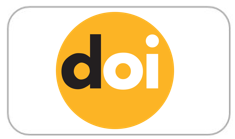ქცევითი ეკონომიკის გავლენა სამომხმარებლო გადაწყვეტილების მიღებაზე სადაზღვევო ინდუსტრიაში
DOI:
https://doi.org/10.52340/healthecosoc.2024.08.02.09საკვანძო სიტყვები:
პოლიტიკის დიზაინი, რისკის აღქმა, სადაზღვევო ინდუსტრია, ქცევითი ეკონომიკა, კოგნიტური მიკერძოება,, მომხმარებელთა გადაწყვეტილების მიღება,ანოტაცია
შესავალი: ტრადიციულად, ეკონომიკური თეორიების მიხედვით, ინდივიდები იღებენ გადაწყვეტილებებს რისკებისა და სარგებლის რაციონალური ანალიზის საფუძველზე. თუმცა, ქცევითი ეკონომიკა ვარაუდობს, რომ კოგნიტურმა მიკერძოებამ და ფსიქოლოგიურმა ფაქტორებმა შეიძლება გავლენა მოახდინონ რაციონალურობის იდეაზე. ნაშრომის მიზანია ქცევითი ეკონომიკის გავლენის შესწავლა სადაზღვევო ინდუსტრიაში გადაწყვეტილების მიღებაზე. მეთოდოლოგია: მრავალმხრივი მეთოდოლოგიური მიდგომის გამოყენებით, გაანალიზდა მეორადი მონაცემები და სხვადასხვა ლიტერატურული წყაროები. შედეგები: ანალიზი ცხადყოფს, რომ ფსიქოლოგიური მიკერძოება, როგორიცაა ჩარჩოს ეფექტი, რისკის არმიღება და გადაჭარბებული თავდაჯერებულობა, მნიშვნელოვნად მოქმედებს სადაზღვევო ინდუსტრიაში მომხმარებლის ქცევაზე. ეს მიკერძოება იწვევს მომხმარებელთა გადაწყვეტილებების მიღებას, რომლებიც განსხვავდება ტრადიციული რაციონალური მოდელისგან. დასკვნა: შემდეგი კვლევა ასკვნის, რომ არა სუფთა ლოგიკა, არამედ გონებრივი მიკერძოება და ემოციები გავლენას ახდენს იმაზე, თუ როგორ ვირჩევთ დაზღვევას. იმისათვის, რომ მომხმარებლებმა უკეთესი გადაწყვეტილებები მიიღონ, სადაზღვევო კომპანიებმა უნდა განიხილონ შემდეგი ქცევები მომავალში და ხელი შეუწყონ ეფექტური ბაზრის განვითარებას.
წყაროები
Bernarz, Z., Lewis, K., & Sadowski, J. (2025). ‘It's not personal, it's strictly business’: Behavioural insurance and the impacts of non-personal data on individuals, groups and societies. Computer Law & Security Review, 56, 1-14. doi:https://doi.org/10.1016/j.clsr.2024.106096
Buzatu, C. (2013). The Influence of Behavioral Factors on Insurance Decision - a Romanian Approach. Procedia Economics and Finance, 6, 31-40. doi:https://doi.org/10.1016/S2212-5671(13)00110-X
Corcos, A., Montmarquette, C., & Pannequin, F. (2020). How the demand for insurance became behavioral. Journal of Economic Behavior & Organization, 180, 590-595. doi:https://doi.org/10.1016/j.jebo.2020.09.001
Dragos, S. L., Dragos , C. M., & Muresan, G. M. (2020). From intention to decision in purchasing life insurance and private pensions: different effects of knowledge and behavioural factors. Journal of Behavioral and Experimental Economics, 87, 1-19. doi:https://doi.org/10.1016/j.socec.2020.101555
Harrison, W. G. (2023). The End of Behavioral Insurance. Handbook of Insurance, 1-39. Retrieved December 19, 2024, from file:///C:/Users/USER/Desktop/Research%20(Insurance%20Principles)/CEAR-WP-2023-06-The-End-of-Behavioral-Insurance.pdf
Md.Sum, R., & Nordin, N. (2018). Decision-Making Biases in Insurance Purchasing. Journal of Advanced Research in Social and Behavioral Sciences, 10(2), 165-19. Retrieved December 19, 2024, from https://www.researchgate.net/profile/Rabihah-Mdsum/publication/324246281_Decision-Making_Biases_in_Insurance_Purchasing/links/5ac6e395a6fdcc8bfc7f866c/Decision-Making-Biases-in-Insurance-Purchasing.pdf
Serfilippi, E., Carter, M., & Guirkinger, C. (2020). Insurance contracts when individuals “greatly value” certainty: Results from a field experiment in Burkina Faso. Journal of Economic Behavior & Organization, 180, 731-743. doi:https://doi.org/10.1016/j.jebo.2019.07.017
Shiller, R. J. (2005). Irrational Exuberance (Second Edition). Princeton, New Jersey: Princeton University Press. doi:https://www.jstor.org/stable/j.ctt7st4s














